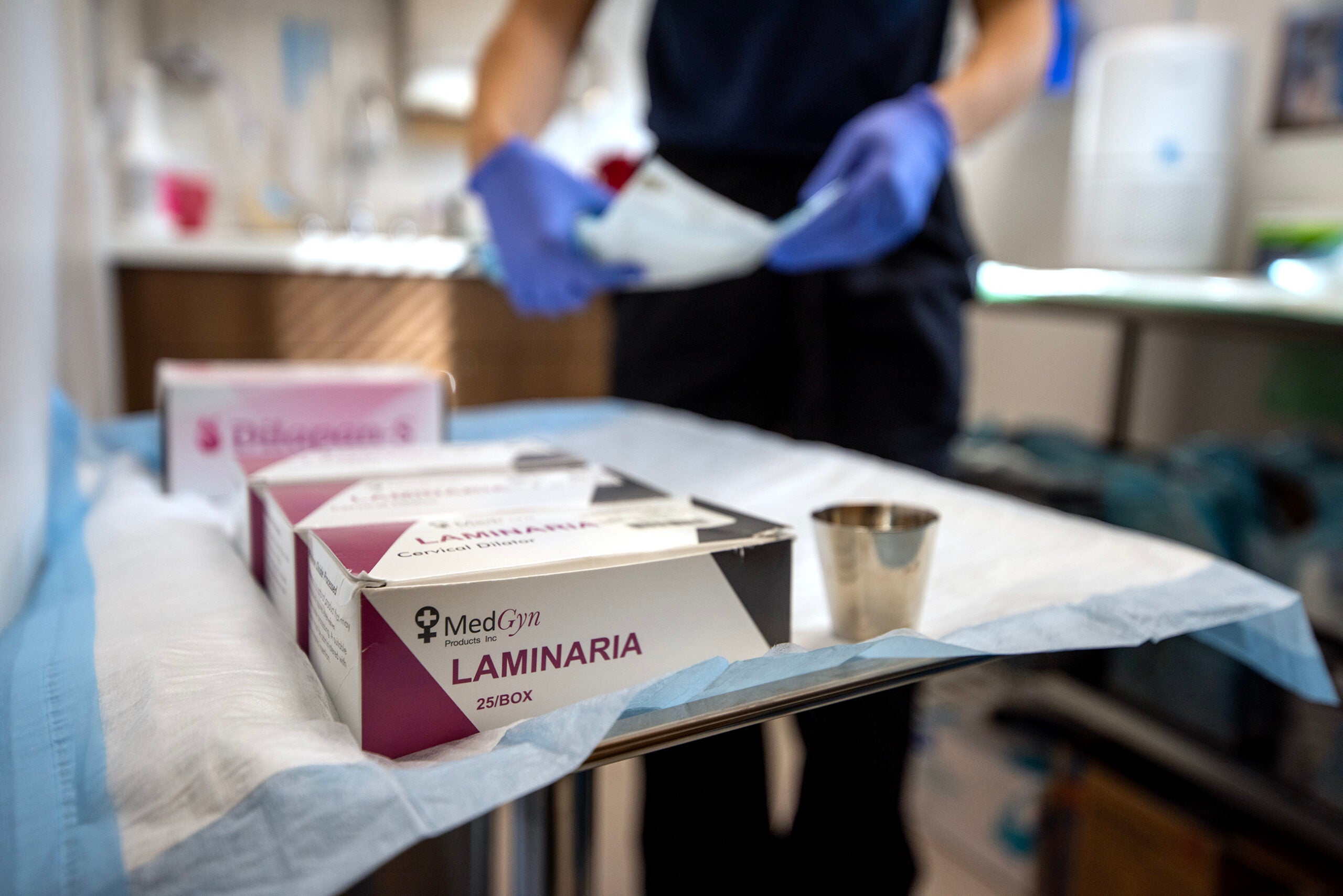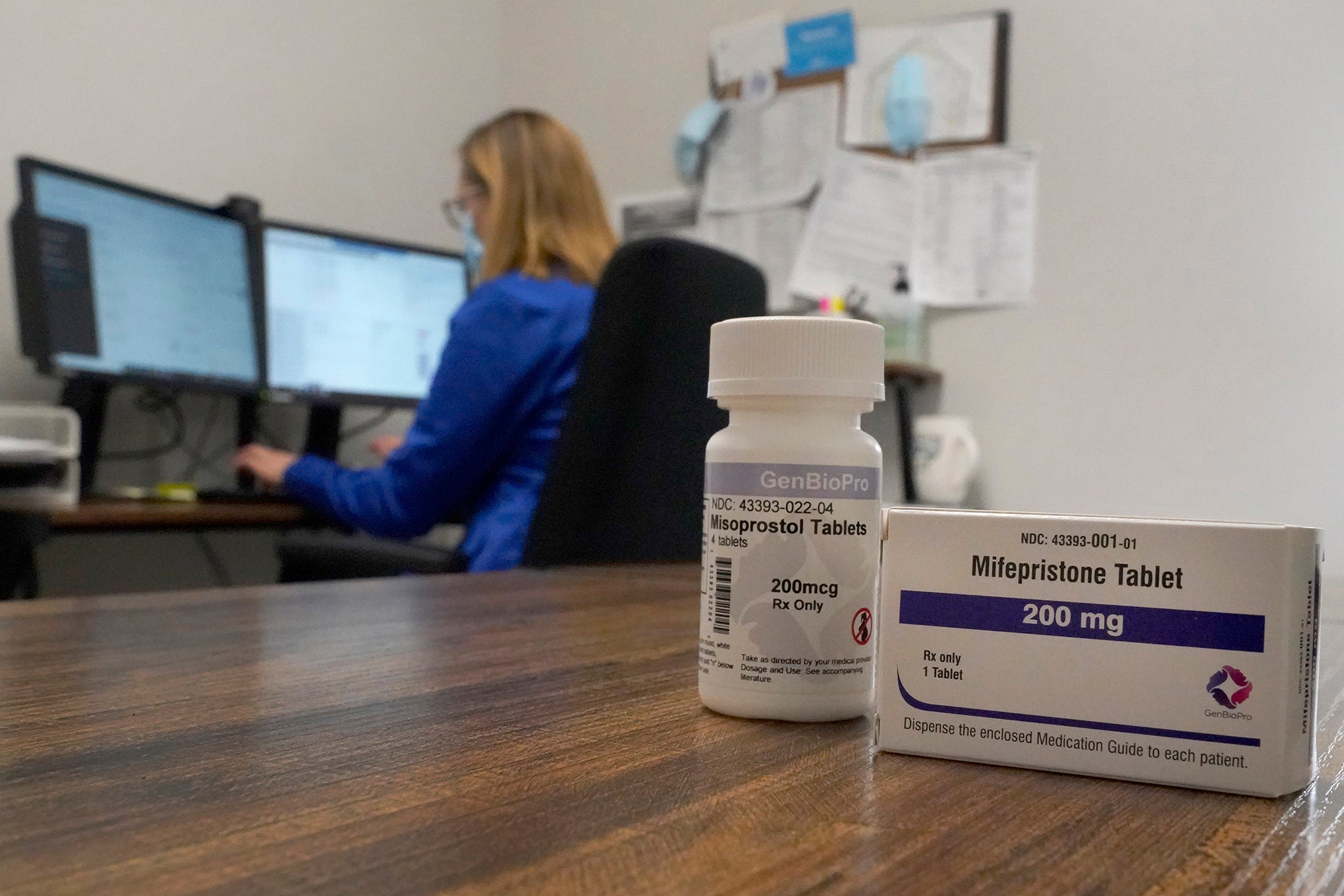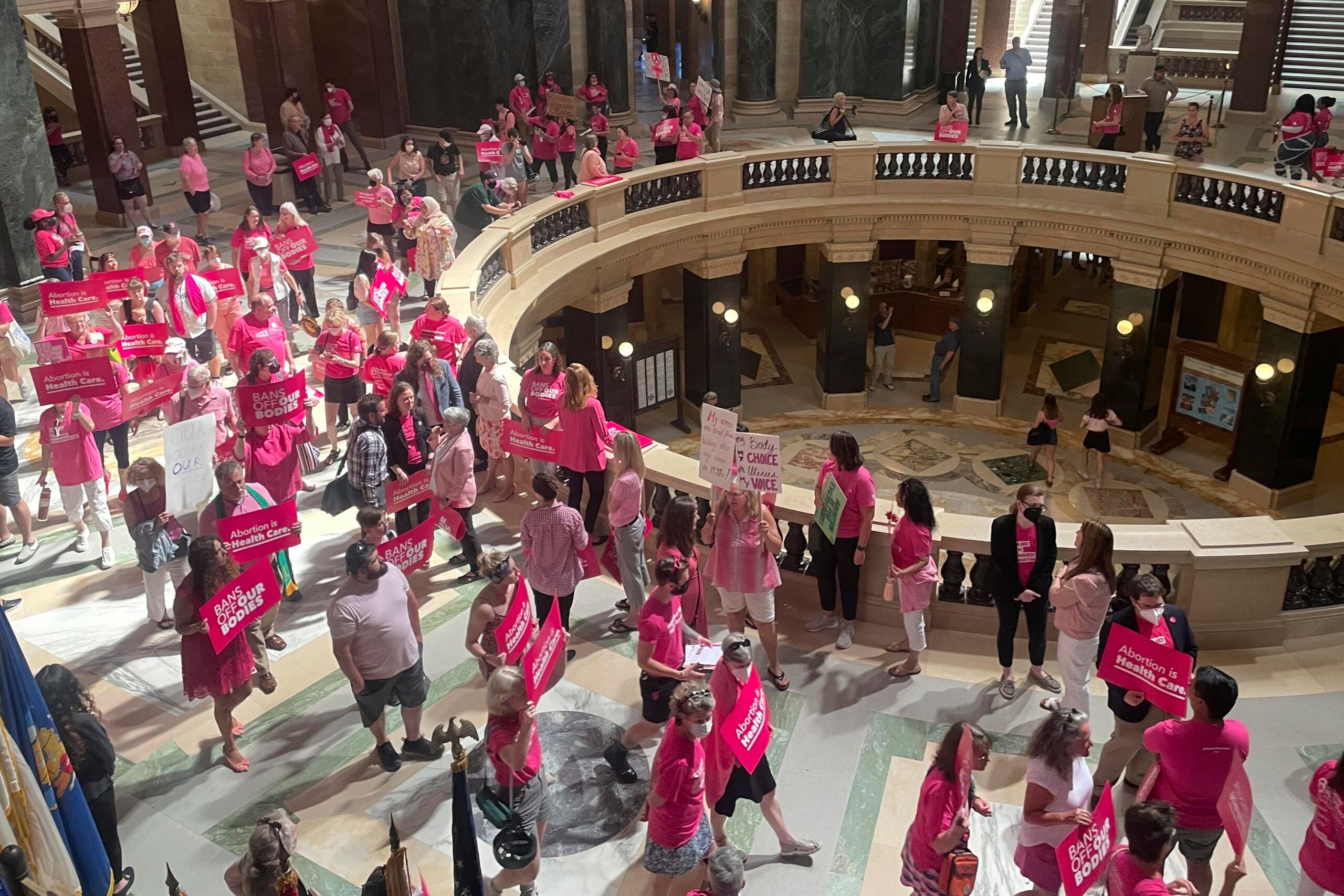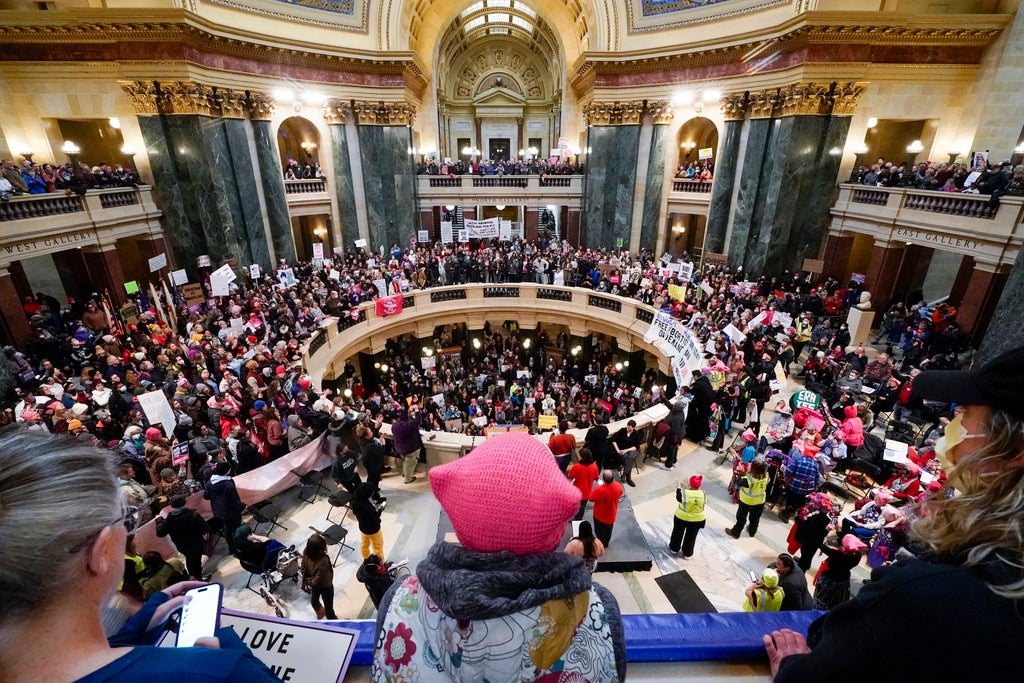In a series of events Wednesday, Wisconsin Democrats denounced the abortion access record of Republican U.S. Senate candidate Eric Hovde, signaling that the issue of abortion is likely to again be central to Democratic campaign strategy through 2024.
Bundled against the sudden Wisconsin cold on the steps of the state Capitol, Sen. Kelda Roys, D-Madison, argued that Hovde — who announced earlier this month he will challenge incumbent U.S. Sen. Tammy Baldwin for her seat in Washington — would also limit women’s access to contraception and certain fertility treatments.
“We cannot afford the risk of Donald Trump and Eric Hovde and their friends getting power at the federal government and passing national abortion bans,” Roys said.
News with a little more humanity
WPR’s “Wisconsin Today” newsletter keeps you connected to the state you love without feeling overwhelmed. No paywall. No agenda. No corporate filter.
Elsewhere in Wisconsin, medical providers and advocates spoke in Green Bay and Milwaukee, making similar arguments about Hovde’s record on abortion and endorsing Baldwin’s record, which has included authoring a bill reenacting many of the federal protections for abortion access previously enshrined under the Roe v. Wade decision.
In a statement, Hovde said voters should have the ultimate say in whether and how abortion is administered in Wisconsin.
“I believe the voters of Wisconsin can come together and find a common sense and compassionate solution that respects life while also safeguarding individual rights,” he said. “I believe we need exceptions for cases of rape, incest and to protect the life of the mother.”

The renewed push by Democrats comes roughly a week after the Alabama Supreme Court ruled that frozen embryos are children, a decision that could have wide-ranging implications for fertility treatments that abortion access advocates have argued shows Republicans are seeking to limit women’s healthcare in broader ways.
It was just the latest sign that Democrats see the issue of abortion as central to their campaigns this November. Polling from the Marquette Law School has found that more than two-thirds of voters consistently support making abortion legal in all or most cases.
2024 will be first presidential election since Roe was overturned
Julia Azari, a political scientist at Marquette University, said that the 2024 election will be the first presidential election since the U.S. Supreme Court’s decision in Dobbs v. Jackson overturned Roe v. Wade. That change, she said, coupled with overarching public support for abortion access, puts Republicans on the defensive.
“This was all pretty rhetorical, prior to Dobbs, where politicians would say, ‘I’m very pro-life,’ knowing that they would never have to confront the specifics of that position,” she said. “Now that so much more is possible in terms of restrictions … politicians run into the prospect of contradicting themselves. They run into the prospect of having to sort of guess where public opinion will be at.”
Since Roe v. Wade was overturned in 2022, effectively returning the question of abortion law to the states, abortion access has been a winning issue for Democrats. The midterm elections that year saw high voter turnout and greater-than-expected support for Democratic candidates, fueled in part by voter support for ballot initiatives expanding abortion access.
In Wisconsin, the issue was central to Gov. Tony Evers’ reelection campaign, and he has made protecting reproductive choice a lynchpin of his tenure in office. Last spring, abortion was one of the key issues that motivated a groundswell of support for Janet Protasiewicz’s successful campaign for the Wisconsin Supreme Court.
While the issue remains a powerful one for Democrats, the legal status of abortion has changed in Wisconsin. During the 2022 and 2023 elections, abortion stopped in the state due to a Civil War-era law that was widely interpreted as banning abortions. Since then, a Dane County judge has ruled that the law actually bans feticide, and clinics have resumed offering abortions in Wisconsin.

Wisconsin Public Radio, © Copyright 2025, Board of Regents of the University of Wisconsin System and Wisconsin Educational Communications Board.







